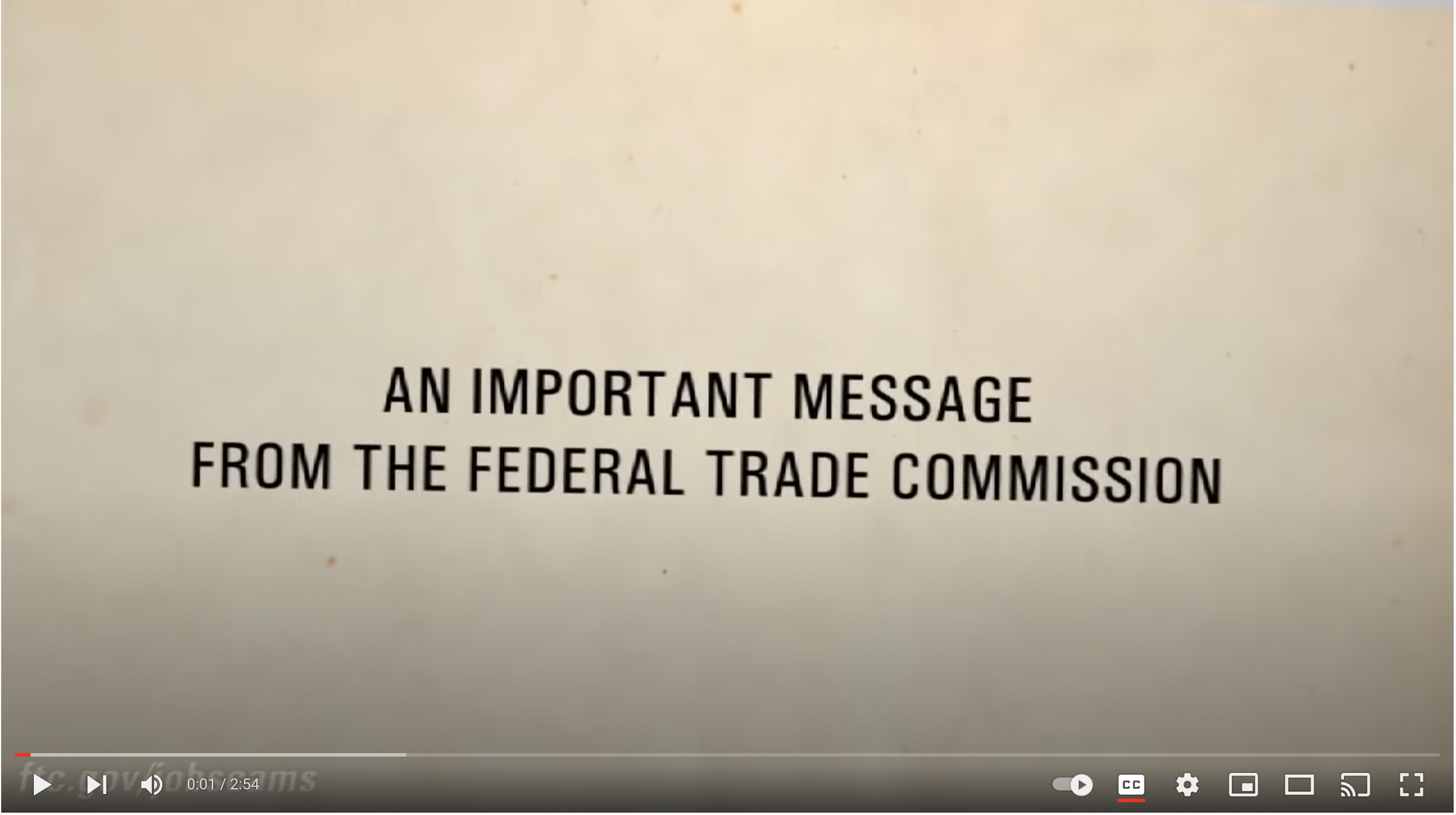Fraudulent Job Postings
Beware: Not All Job Postings are Legitimate
All jobs posted on the University of Northern Iowa Job & Internship Board are for the benefit of UNI students. The Office of Career Services at the University of Northern Iowa does not endorse or recommend any employer or position posted. UNI Career Services receives job postings both directly and indirectly through a national job feed. There is no representation or guarantees about a job listing or the accuracy of information provided to UNI Career Services by the employer. Employers and job postings are reviewed using the following UNI Recruiting Guidelines. It is impossible to ensure that every job posting is legitimate, and impossible to keep track of every employer and position after submission.
The University of Northern Iowa is not responsible for safety, wages, working conditions, or any other aspect of non-University employment without limitation. It is the responsibility of the student/job seeker to perform due diligence in researching employers when applying or accepting non-University employment. Students should be prudent, use common sense and caution when applying for or accepting any position.
Common "Red Flags" of Job Posting Scams
- Offered a Job without Applying/Interviewing
Did you get an email to work as an Administrative Assistant? Did they say they received your resume from Career Services? This scam is conducted by finding/phishing your email from the campus directory. UNI Career Services never shares your information with employers. All legitimate employers will have you apply and interview for a job. - Out of the Country / Wire Money
In this scenario, an employer will request to deposit money for you to buy supplies or make payments. This is always a scam and should be reported. Recently at UNI, students were contacted by people who said they ran local businesses on Cedar Falls Main Street. When the student contacted the representative, they indicated they were working abroad and needed someone to manage things locally. - Too Good to Be True
Work your own hours. Be a Secret Shopper. Work for an A-List Celebrity. Make $10k for one week of work. These tactics are used to draw interest and then take advantage of you before you start working. There is no job posted that is perfect. Too good to be true should be investigated. - Poorly Written Job Postings
Typically, there will not be typos or poor grammar in a legitimate job posting. Be very suspicious if you see either in a job posting. - High Wages for No Experience
Earn $100,000 in your first job out of college. Again, the idea is that scammers want to make you believe you were highly sought after to complete jobs anyone could do. The truth is you will not make a lot of money without talent, experience, and specialized skills. - Work from Home
There are legitimate "work at home" jobs, but they are often difficult to find. Do significant research and ask tough questions. - Send a Photo
Please don't. - Bad Website. No Phone Number.
You search for a company you have never heard of before. The first link is to a Facebook or free website creator site. It might look good, but the content does not appear correct. You click on the "contact us" and see no phone number. These are all red flags of potential scams. - Recruiter has a @gmail/@hotmail account and represents a Large Organization
If the recruiter is from a Fortune 500 or a community school, yet the email is from a free web-based service, use caution. - Interview at a Restaurant
Legitimate organizations have offices. Be wary.
Think it is a Scam? Report It.
- Tell Career Services so we can review the position/employer.
- You may contact campus/local police if money has been transferred.
- If you did transfer bank information, contact your bank and lock your accounts.
- File an incident report with the US Department of Justice and the Federal Trade Commission.

